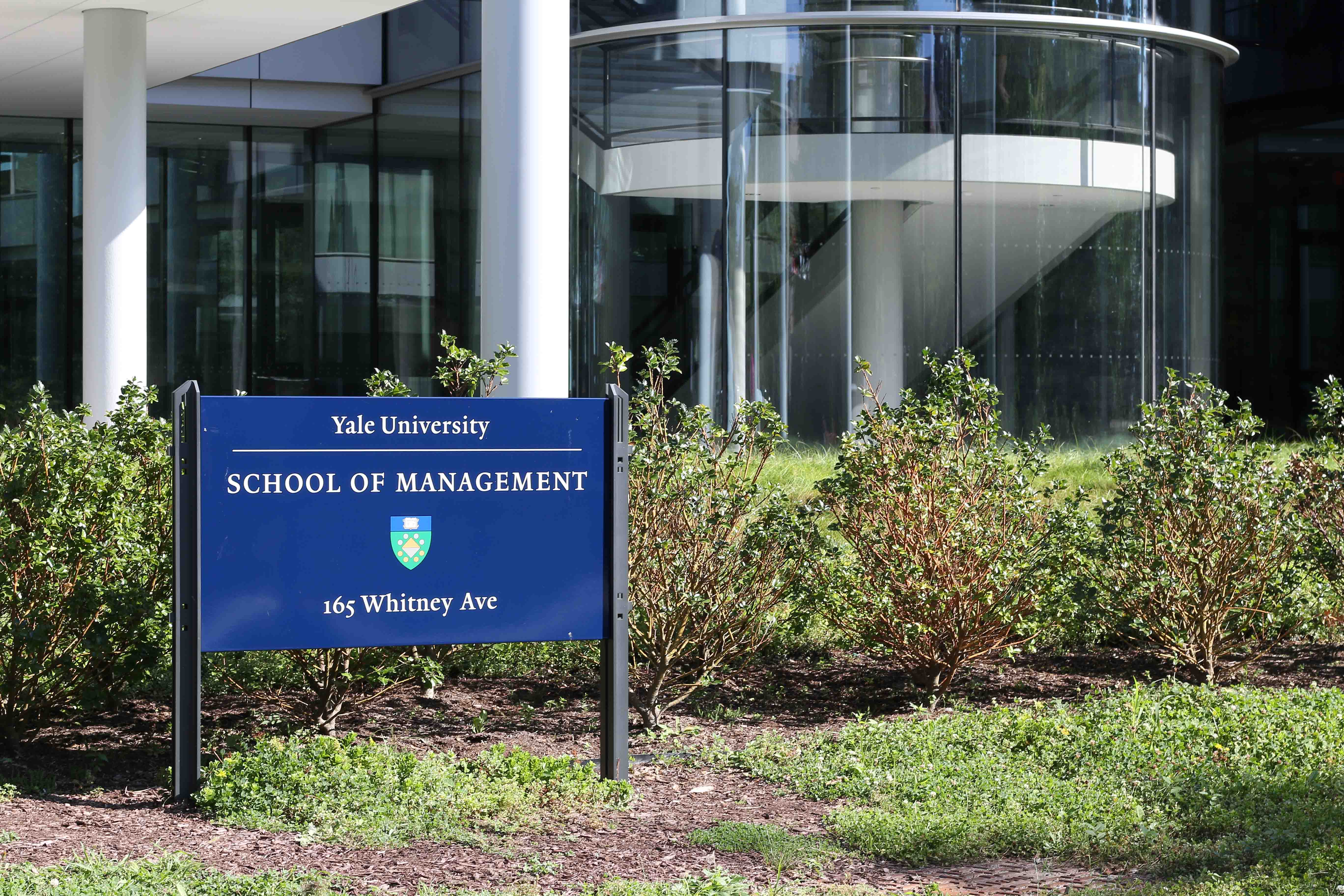
Students at the School of Management have responded to President Donald Trump’s administration with a surge in political activism and engagement.
SOM students held a congressional phone bank that drew 150 to 200 attendees on Feb. 2, and four days later, activists presented SOM Dean Edward Snyder with a letter signed by 224 members of the SOM student body, urging him to heighten his condemnation of Trump’s executive order on Muslim immigration. A closed Facebook group called “Activists at SOM” was also recently created to share activist ideas and information and has accrued 203 members. Jocina Becker SOM ’17, who organized the phone bank, said the momentum for activism at the school has been high since the election.
“There was some activism rallying around campaigns, especially around the Hillary Clinton LAW ’73 campaign before the election,” Becker said. “But I think the energy changed on Nov. 9.”
Becker added that since the congressional phone bank, an event called “Caffeine and Civic Engagement,” students from other University schools and departments — including the School of Nursing, School of Forestry, School of Public Health and the Political Science Department — have contacted SOM activists for advice on how to implement similar events. Becker also said she is planning to speak with student activists from master’s programs at Stanford, Harvard and the Wharton School at the University of Pennsylvania about possible collaborations.
SOM Senior Associate Dean David Bach said that despite recent political events, SOM students will maintain their global leadership, and the current political climate has allowed SOM to reaffirm its goal of fostering international collaboration.
“The difference now is that [SOM students] have to function in a more complicated and volatile political environment,” Bach said. “For us, this is first and foremost programmatically a reaffirmation of the strategy we’ve been pursuing, which is to connect with leading business schools from around the world.
Bach added that with the international focus of SOM, students are better prepared for business in a world that is global but has become more “politically challenging.”
Ankur Kapadia SOM ’17 said he joined the “Activists at SOM” Facebook group in response to anti-immigrant rhetoric in America and expressed particular dismay at the Wednesday killing of an Indian man in Olathe, Kansas, which federal authorities are investigating to determine if it constitutes a hate crime. Kapadia, himself an Indian immigrant, said he sees the man’s killing and other anti-immigrant sentiments as a direct consequence of the Trump administration. In response, he said he felt compelled to act.
“It’s important for us to engage rather than be passive in these times,” Kapadia said.
Kapadia also said that with the substantial number of immigrants in the SOM student body, he expects this activism to continue. Forty-six percent of the SOM class of 2018 hold international passports, according to the SOM website.
Liana Wang ’20, another member of the “Activists at SOM” Facebook group and a member of the Yale College Democrats, said the Dems have been in contact with activists at SOM and Yale Law School in an effort to foster collaboration. Wang said that all three groups have similar interests in attending rallies, organizing phone banks and advocating legislation.
“In the wake of the election, the Dems have done a lot of similar things,” Wang said. “We have been trying for a while to unify the SOM, [the Law School], and the College Dems.”
However, not all student groups have been as compelled to promote activism in response to Trump. Fabian Farkas SOM ’17, club leader of EuroSOM, a group that connects European students and groups, said his group has been monitoring recent events with concern but decided not to release a public statement. Farkas said that his group is trying to stay distant from American politics.
Still, for Kapadia, the best choice for students and schools is to sustain the recent wave of activism.
“One of the primary drivers of higher education in the U.S. is the appeal of our institutions to foreign students and scholars … so it is in the interest of all higher education institutions to have a sensible immigration and visa policy,” Kapadia said. “The involvement of the student body can be a strong show of force at the grass-roots level.”
On Feb. 2, Snyder held a schoolwide forum alongside SOM senior administrators to discuss the executive order.







